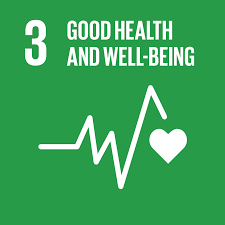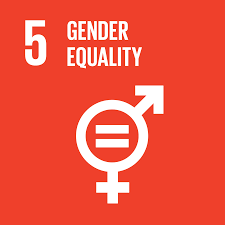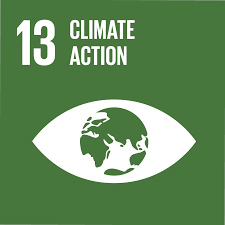Is a Small Pill the Key to Curbing Climate Change?
- Jaya Dayal

- Sep 18, 2020
- 5 min read
This article is focused on the following Sustainable Development Goals:
SDG 3: Ensure healthy lives and promote well-being for all at all ages.
3.1 By 2030, reduce the global maternal mortality ratio to less than 70 per 100,000 live births
3.2 By 2030, end preventable deaths of newborns and children under 5 years of age, with all countries aiming to reduce neonatal mortality to at least as low as 12 per 1,000 live births and under-5 mortality to at least as low as 25 per 1,000 live births
3.7 By 2030, ensure universal access to sexual and reproductive health-care services, including for family planning, information and education, and the integration of reproductive health into national strategies and programmes
SDG 5: Achieve gender equality and empower all women and girls.
5.1 End all forms of discrimination against all women and girls everywhere
5.6 Ensure universal access to sexual and reproductive health and reproductive rights as agreed in accordance with the Programme of Action of the International Conference on Population and Development and the Beijing Platform for Action and the outcome documents of their review conferences
SDG 13: Take urgent action to combat climate change and its impacts.
13.2 Integrate climate change measures into national policies, strategies and planning
13.b Promote mechanisms for raising capacity for effective climate change-related planning and management in least developed countries and small island developing States, including focusing on women, youth and local and marginalised communities acknowledging that the United Nations Framework Convention on Climate Change is the primary international & intergovernmental forum for negotiating the global response to climate change.

Photo courtesy of the Bill & Melinda Gates Foundation.
When it comes to combating climate change, it can be easy to feel like there is no solution that will be able to reverse the years of damage we have done to our planet. However, the answer to the question of what we can do to battle climate change doesn’t need to be found in the depths of future innovations. The answer is something that’s been around for a few decades - a small pill. Access to voluntary family planning should be a human right, leads to tremendous improvement in newborn and maternal health, and is the key to curbing population growth that is driving climate change further and further along an irreversible path.
There are already organisations leading the charge to expand access to family planning, including contraceptives and educational programs, like the United Nations and the Bill and Melinda Gates Foundation. The UN has established within the international community that all people should have the ability to decide how many children they want and when with the use of family planning. The Bill and Melinda Gates Foundation has been at the forefront of turning this goal into action through their intensive data collection and analysis and partnerships with other nonprofit organisations and governments across the world. One initiative they spearheaded is the FP2020, a global partnership focused on empowering women by investing in family planning, aiming to give 120 million people voluntary access to family planning by 2020. Supporting these initiatives is key to ensuring they achieve their goals, whether through donations or awareness campaigns to bring more attention to the issues they focus on. One of the most important things community members can do is tackling one of the largest enemies to expanding access to family planning - stigmas.

Stigmas in cultures across the country have made family planning and reproductive health taboo social issues when they should be thought of as issues of health and human rights. These stigmas have stifled attempts of organisations in communities to both collect data that accurately represents the need for and lack of family planning resources as well as initiatives to expand access to contraceptives and related education. These stigmas are heavily tied to antiquated notions of the inferiority of women or the idea of a woman’s role being in the home. By not providing access to family planning, we are taking away a woman’s control over her health, time, working capacity, and choice as to how many children she believes she can take care of and/or wants to have. Unlocking these rights for women is undoubtedly a path to empowerment and greater gender equality. Fighting these stigmas is something that can be done in communities around the world. Whether it’s fighting to have signs about tampons up at your school in the United States, or advocating for a small reproductive health organisation trying to help a community in rural India, we all can play a role in breaking down stigmas revolving family planning and reproductive health.
“How can we summon a moment of lift for human beings - and especially for women? Because when you lift up women, you lift up humanity.” - Melinda Gates
Empowering women with access to family planning isn’t a good thing for only women - it could be the key to saving our planet. According to the Bill and Melinda Gates Foundation, “Over 220 million women in developing countries who don’t want to get pregnant lack access to contraceptives and voluntary family planning information and services” (“Family Planning”). 45% of pregnancies in the U.S. alone are unplanned. These numbers alone clearly show the vast reductions in global population growth that would result from universal access to family planning. This decrease in population growth would result in the equivalent of 85.42 gigatons of CO2 sequestered between 2020 and 2050. To put that number in context, according to the Environmental Protection Agency, “a typical passenger vehicle emits about 4.6 metric tons of carbon dioxide per year” (Environmental Protection Agency). Vastly reducing our carbon emissions is a critical step to curbing the rate of climate change, and access to family planning is an easy way to do so. It doesn’t require people to cut back or change their lifestyle. Rather, it’s giving women a choice; one that hundreds of millions of women want, and that has the potential to save our planet.
It is clear from the enormous benefits to maternal and newborn health, gender equality, and curbing climate change that universal voluntary access to family planning should be a global priority. It is a key step to tackling SDG 3, ensuring healthy lives and promoting the well-being of all people of all ages, SDG 5, achieving gender equality and empowering women and girls, and SDG 13, taking urgent action to combat climate change and its impacts. Become a voice in the movement to support initiatives expanding access to family planning and to fight against the stigmas that have suppressed it for so long. Remember, family planning isn’t just for women - it’s for our whole planet.
Works Cited
Environmental Protection Agency. Greenhouse Gas Emissions from a Typical Passenger Vehicle. 10 May 2018, www.epa.gov/greenvehicles/greenhouse-gas-emissions-typical-passenger-vehicle.
“Family Planning.” The Bill & Melinda Gates Foundation, 1 Jan. 1AD, www.gatesfoundation.org/What-We-Do/Global-Development/Family-Planning.
Family Planning 2020. Family Planning 2020, www.familyplanning2020.org/.
“Family Planning Promise.” The Bill & Melinda Gates Foundation, 1 Jan. 1AD, www.gatesfoundation.org/Media-Center/Press-Releases/2015/11/Family-Planning-Promise .
“How Have Contraceptives Changed Your Life?” The Bill & Melinda Gates Foundation, 1 Jan. 1AD, www.gatesfoundation.org/What-We-Do/Global-Development/How-have-contraceptives-changed-your-life.
United Nations. “World Population Prospects 2019: Highlights.” Statistical Papers - United Nations (Ser. A), Population and Vital Statistics Report, 2019, doi:10.18356/13bf5476-en. https://population.un.org/wpp/Publications/Files/WPP2019_Highlights.pdf
“Women and Girls: Family Planning.” Project Drawdown. 2019, https://www.drawdown.org/solutions/women-and-girls/family-planning.






Comments